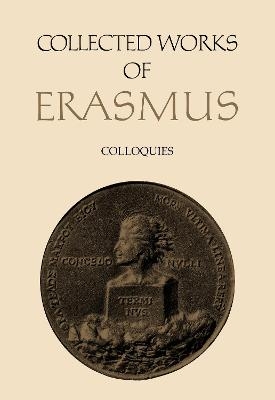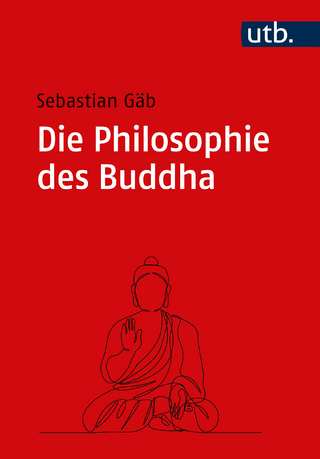
Collected Works of Erasmus
Colloquies
Seiten
1997
University of Toronto Press (Verlag)
978-0-8020-5819-5 (ISBN)
University of Toronto Press (Verlag)
978-0-8020-5819-5 (ISBN)
- Titel z.Zt. nicht lieferbar
- Versandkostenfrei innerhalb Deutschlands
- Auch auf Rechnung
- Verfügbarkeit in der Filiale vor Ort prüfen
- Artikel merken
Erasmus’ Familiar Colloquies grew from a small collection of phrases, sentences, and snatches of dialogue written in Paris around 1497 to help his private pupils improve their command of Latin.
Erasmus' Familiar Colloquies grew from a small collection of phrases, sentences, and snatches of dialogue written in Paris about 1497 to help his private pupils improve their command of Latin. Twenty years later the material was published by Johann Froben (Basel 1518). It was an immediate success and was reprinted thirty times in the next four years. For the edition of March 1522 Erasmus began to add fully developed dialogues, and a book designed to improve boys' use of Latin (and their deportment) soon became a work of literature for adults, although it retained traces of its original purposes. The final Froben edition (March, 1533) had about sixty parts, most of them dialogues.
It was in the last form that the Colloquies were read and enjoyed for four centuries. For modern readers it is one of the best introductions to European society of the Renaissance and Reformation periods, with lively descriptions of daily life and provocative discussions of political, religious, social, and literary topics, presented with Erasmus's characteristic wit and verve. Each colloquy has its own introduction and full explanatory, historical, and biographical notes.
Volumes 39 and 40 of the Collected Works of Erasmus series – Two-volume set.
Erasmus' Familiar Colloquies grew from a small collection of phrases, sentences, and snatches of dialogue written in Paris about 1497 to help his private pupils improve their command of Latin. Twenty years later the material was published by Johann Froben (Basel 1518). It was an immediate success and was reprinted thirty times in the next four years. For the edition of March 1522 Erasmus began to add fully developed dialogues, and a book designed to improve boys' use of Latin (and their deportment) soon became a work of literature for adults, although it retained traces of its original purposes. The final Froben edition (March, 1533) had about sixty parts, most of them dialogues.
It was in the last form that the Colloquies were read and enjoyed for four centuries. For modern readers it is one of the best introductions to European society of the Renaissance and Reformation periods, with lively descriptions of daily life and provocative discussions of political, religious, social, and literary topics, presented with Erasmus's characteristic wit and verve. Each colloquy has its own introduction and full explanatory, historical, and biographical notes.
Volumes 39 and 40 of the Collected Works of Erasmus series – Two-volume set.
Desiderius Erasmus (c. 1466–1536), a Dutch humanist, Catholic priest, and scholar, was one of the most influential Renaissance figures. A professor of divinity and Greek, Erasmus wrote, taught, and travelled, meeting with Europe’s foremost scholars. A prolific author, Erasmus wrote on both ecclesiastic and general human interest subjects. The late Craig R. Thompson was Emeritus Professor of English Literature, University of Pennsylvania. He was for many years a member of the Editorial Board of the Collected Works of Erasmus and has edited and translated a number of Renaissance texts, including the CWE 23-24.
| Erscheint lt. Verlag | 17.5.1997 |
|---|---|
| Reihe/Serie | Collected Works of Erasmus ; 39-40 |
| Übersetzer | Craig Thompson |
| Verlagsort | Toronto |
| Sprache | englisch |
| Maße | 178 x 254 mm |
| Gewicht | 2900 g |
| Themenwelt | Geisteswissenschaften ► Philosophie ► Östliche Philosophie |
| Geisteswissenschaften ► Philosophie ► Philosophie des Mittelalters | |
| Geisteswissenschaften ► Sprach- / Literaturwissenschaft ► Anglistik / Amerikanistik | |
| Geisteswissenschaften ► Sprach- / Literaturwissenschaft ► Literaturwissenschaft | |
| ISBN-10 | 0-8020-5819-1 / 0802058191 |
| ISBN-13 | 978-0-8020-5819-5 / 9780802058195 |
| Zustand | Neuware |
| Haben Sie eine Frage zum Produkt? |
Mehr entdecken
aus dem Bereich
aus dem Bereich


